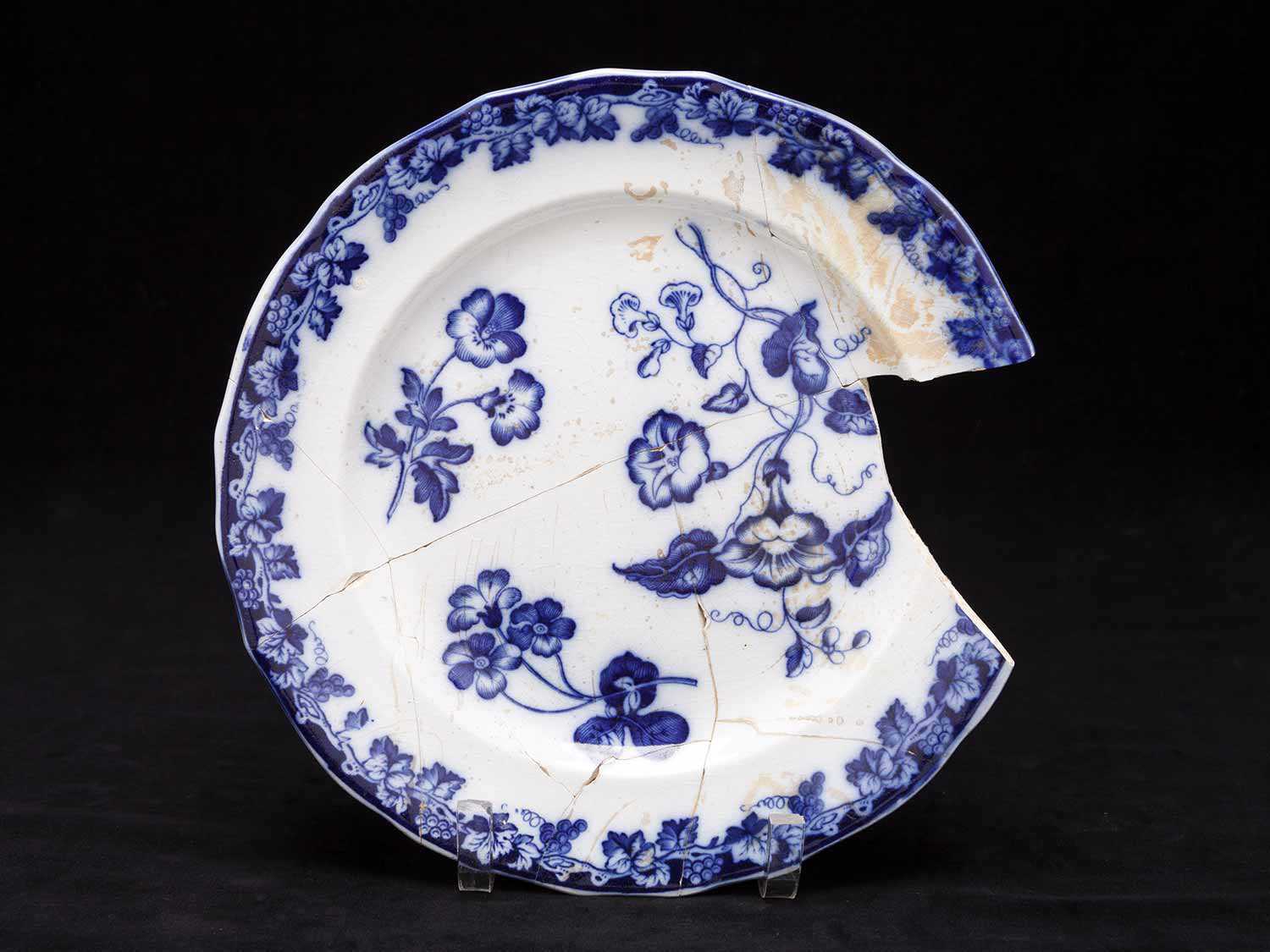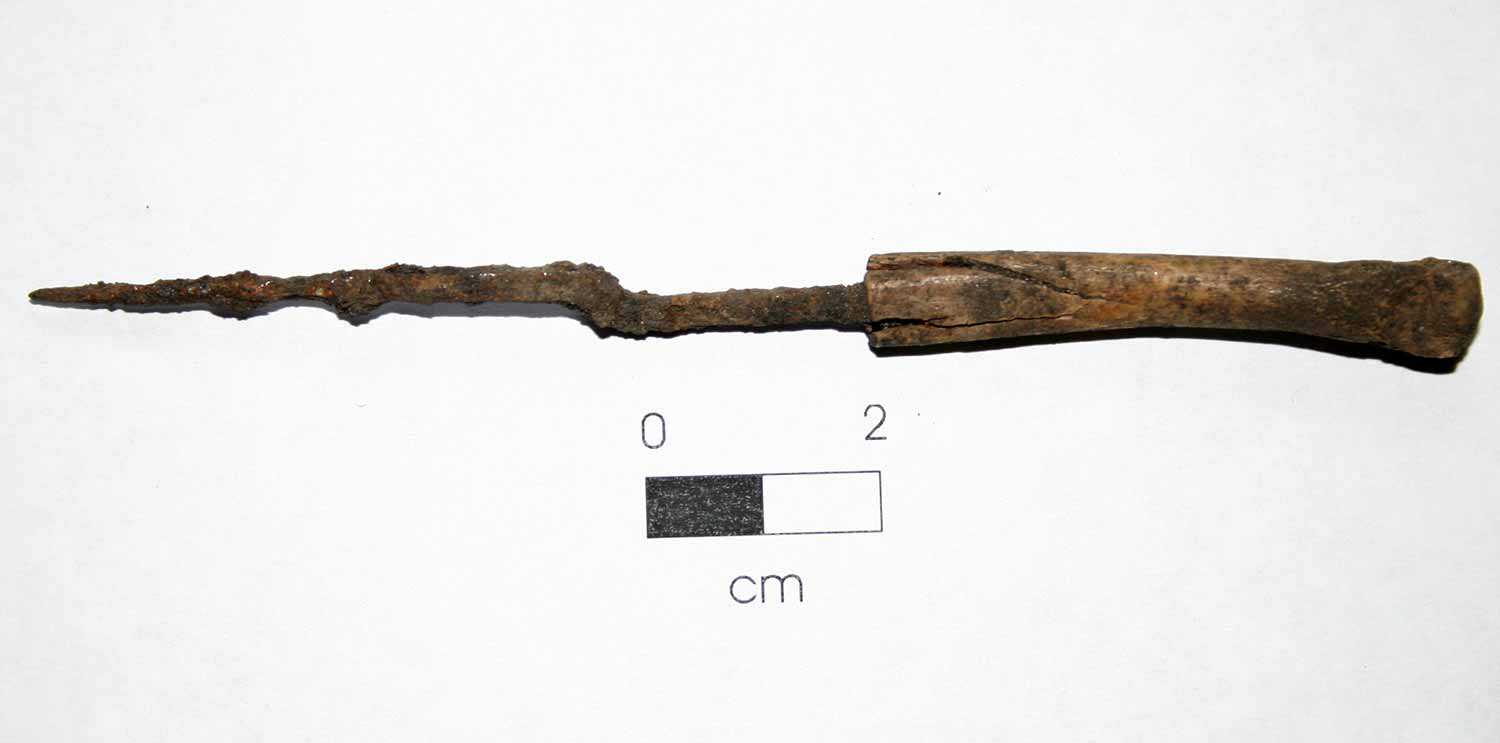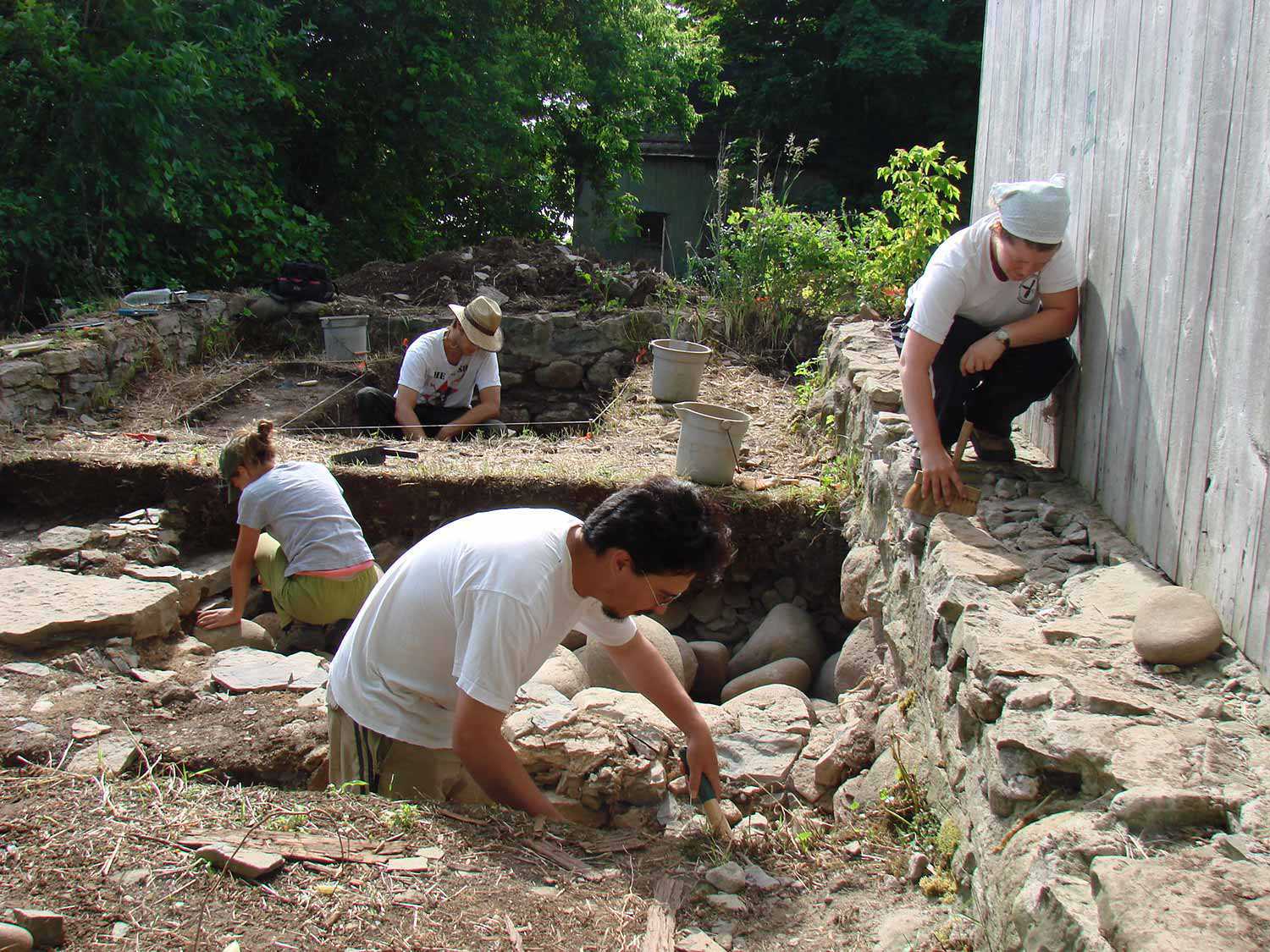Menu
Archaeology – Frequently asked questions
What is archaeology?
Archaeology is the scientific study of the human past through investigations of physical remains and material cultural (e.g., artifacts, fragments, features and structures).
What is an archaeological site?
An archaeological site is any property that contains an artifact or any other physical evidence of past human use or activity that is of cultural heritage value or interest (see Ontario Regulation 170/04).
What is an archaeological artifact?
An archaeological artifact is any object, material or substance that is made, modified, used, deposited or affected by human action and is of cultural heritage value or interest (see Ontario Regulation 170/04).
What is archaeological fieldwork?
Archaeological fieldwork is any activity carried out on, above or under land or water for the purpose of obtaining and documenting data, recovering artifacts and remains, or altering an archaeological site. Activities may include monitoring, assessing, exploring, surveying, recovering and excavating (see Ontario Regulation 170/04).
Why is archaeology important?
Archaeology is important in documenting the vast majority of Ontario’s past and in emphasizing the significance of Aboriginal communities in shaping Ontario’s heritage. Archaeology studies human behaviour – it chronicles the evolution of cultures as well as understands their histories. It provides us with information about recent and past cultures that would otherwise be unavailable. Knowledge of the past helps us to know where we come from. In many cases, the only information we have about a people, an event or a past way of life is through the archaeological record because of the absence of a written record. The interpretation of archaeological resources is dependant on the integrity of the immediate context. It is vital that archaeological investigation be undertaken by trained and experienced professionals before a site is disturbed. Archaeological resources are fragile records of the past. Unlicensed alterations through land use activities or site looting can destroy them and are prohibited under Section 48(1) of the Ontario Heritage Act.
What is the role of the Ministry of Citizenship and Multiculturalism?
Archaeology is mandated under Part VI of the Ontario Heritage Act and the Minister of Citizenship and Multiculturalism is authorized to issue archaeological licenses to undertake archaeological fieldwork as specified under Ontario Heritage Act Section 48(1) and Ontario Regulation 8/06. Under Section 65 of the Ontario Heritage Act, as required by the Minister of Citizenship and Multiculturalism, licensees must file project reports. The Ministry reviews the reports to determine whether the report complies with the Standards and Guidelines for Consultant Archaeologists that are issued by the Minister and that form part of the terms and conditions of the license issued under Part VI of the act. When the report is accepted by the Ministry, the report is entered into the Ontario Public Register of Archaeological Reports.
What are archaeological assessments?
The technical requirements for archaeological fieldwork and Stage 1 to 4 assessment is specified in the Standards and Guidelines for Consultant Archaeologists. The purpose of the first three stages is to identify sites, to assess the cultural heritage value or interest of identified archaeological sites, and to recommend the most appropriate strategies for those archaeological sites where mitigation of impacts will be necessary. The stages are outlined as follows:
Stage 1 – Background Study and Property Inspection: A review of the geography, land use and historical information for the project is conducted and often supplemented by a property inspection.
Stage 2 – Property Assessment: A survey of the property that includes strategies employed, depending on the nature of the property (e.g., walking a ploughed field, test-pitting, etc.).
Stage 3 – Site-specific Assessment: Larger excavation units are employed to assist in determining the spatial extent of an identified archaeological site. The development of strategies to mitigate development impacts are also addressed during this stage.
Stage 4 – Mitigation of Development Impacts: A determination of implementing long-term protection strategies for archaeological sites is included in this stage. If preservation of the archaeological site is not viable, thorough archaeological excavation is conducted to document the site and remove artifacts prior to construction.
Who can request an archaeological assessment in Ontario?
An owner could request an archaeological assessment for a particular property. No assessment can be undertaken on a property without the consent of an owner. An approval authority may ask for an archaeological assessment as a condition of a Planning Act, Cemeteries Act (Revised), Aggregate Resource Act, Environmental Assessment Act or Ontario Heritage Act application – or any other form of site alteration that might otherwise impact a known archaeological site or an area of recognized archaeological potential.
Who approves archaeological assessments in Ontario?
The approval authority who requests the assessment is the approving body, but because archaeology is licensed by the Ministry of Citizenship and Multiculturalism, all archaeological reports are submitted to the Ministry for license review and, where applicable, development review. The Ministry issues letters of acceptance for reports that meet the Ministry’s Standards and Guidelines for Consultant Archaeologists.
What is the difference between research archaeology and development mitigation archaeology?
Research archaeology is solely undertaken to achieve a research objective. Development mitigation archaeology – often called consulting archaeology versus academic-based research archaeology – is undertaken as a condition of a site alteration or development proposal.
Where can I find a licensed archaeologist?
The following organizations may be of assistance in finding a licensed archaeologist:
- Association of Professional Archaeologists (APA)
- Canadian Association of Heritage Professionals (CAHP)
- Ontario Archaeological Society (OAS)
What is a registered archaeological site?
A registered archaeological site is an archaeological site that has been issued a Borden number and entered into the database of archaeological sites maintained by the Ministry of Citizenship and Multiculturalism.
What is a Borden number?
A Borden number is a unique alpha-numeric identifier for each registered archaeological site discovered in Canada. It was created by Charles E. Borden (1905-1978) in the early 1950s at the University of British Columbia. It is based on the geospatial grid that applies to all of Canada. Borden numbers for Ontario are issued by the Ministry of Citizenship and Multiculturalism.
For example: AjGu-41
The first four alphabetical characters (formatted as uppercase, lowercase, uppercase, lowercase) reference the specific geographical grid (each square is approximately 16 km / 8.7 miles by 16 km / 8.7 miles area) in which the site is located. The number following the hyphen is the order in which the site was discovered in that grid. All registered archaeological sites have Borden numbers and common site names. For instance, for the Borden number AjGu-41 this is the forty-first archaeological site found and registered in the grid area known as AjGu; the site is known as the Parliament site.
What is archaeological potential?
Based on the land-use history of a property or its physical characteristics, it is possible to determine if certain lands are likely to possess significant archaeological resources, even if there is no known or registered archaeological site on that property.
Where can I get more information on the archaeology of my community?
Many organizations can provide you with this information, including your local Municipal Heritage Committee, local museums, the Ministry of Citizenship and Multiculturalism, the Ontario Archaeological Society and the Ontario Heritage Trust.
Where can I go to school for archaeology?
There are many universities in Ontario that have programs related to archaeology: the University of Toronto, the University of Windsor, the University of Western Ontario, McMaster University, Trent University, Wilfrid Laurier University, Lakehead University and Laurentian University.
Who do I contact if I want to volunteer on an archaeological site?
Contact the Ontario Archaeological Society for information regarding other programs across the province.



